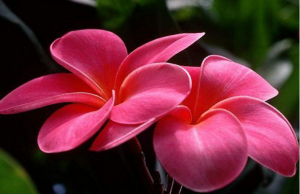An excerpt from the Mindfulness workshop given by Jetsunma Ahkon Lhamo in 1999
As practitioners we think, “Oh, I love all this stuff you’re telling me and it’s all very nice and everything, but what I’d really like is a nature of mind teaching. What I’d really like is some Dzogchen! Don’t start me with the basics. Give me that high stuff.” We think that, and then, sadly, pitifully, really, what happens is that we get this incredible Dzogchen teaching about the nature of mind, and it becomes to us something else that we, I, the ego, have collected. Something as precious as a view of the nature of our Buddhahood, of the nature of our mind becomes just another thing that we hold; that I, the ego, holds. It becomes something I have, and it makes me even greater because I have those teachings, and you don’t.
If we allow ourselves to practice in that way, by simply wanting that teaching and not requiring the recognition, not making ourselves go through the steps, we are dishonoring the Dharma. Instead of collecting great teachings from great teachers, it would behoove us to look in the mirror, to observe our own phenomena. In order to discriminate between what is extraordinary and what is ordinary, what is enlightened activity and what is samsaric activity. In order to develop this mindfulness, we have to learn to discriminate the world of phenomena. We have to learn to discriminate appearances. That never happens magically.
The terrible and painful mistake that we make is to think that eventually if we do our practice there’s going to be an experience. We think that one day we’ll do our practice, and suddenly our aura will get big, or we’ll have some kind of AHA! “There it is! Enlightenment!” and we’ll be magically changed. We even fantasize about this. You know that you do. You fantasize about other people seeing how enlightened you are. You fantasize about how honored you will be when they “get” where you’re coming from. You’re not alone, don’t worry.
This kind of idea is completely the opposite of the kind of discrimination regarding the world of appearances. In waiting for enlightenment to come to us, we’re actually practicing duality. In waiting for enlightenment to come to us, in waiting for that moment when the hallelujah chorus starts, we are actually saying, “I, ego, I am waiting for that to come to me.” So in that state it will never happen. In that state there is no such event. There simply cannot be because there is no discrimination and no mindfulness — no mindfulness of the world of appearances. In order to engage in giving rise to recognition of the empty nature of phenomena, you have to work at it. To do the practice and just wait for this recognition is inappropriate. It should be practiced with every breath. It should be practiced with every moment of our lives, and not just our spare moments.
© Jetsunma Ahkön Lhamo











